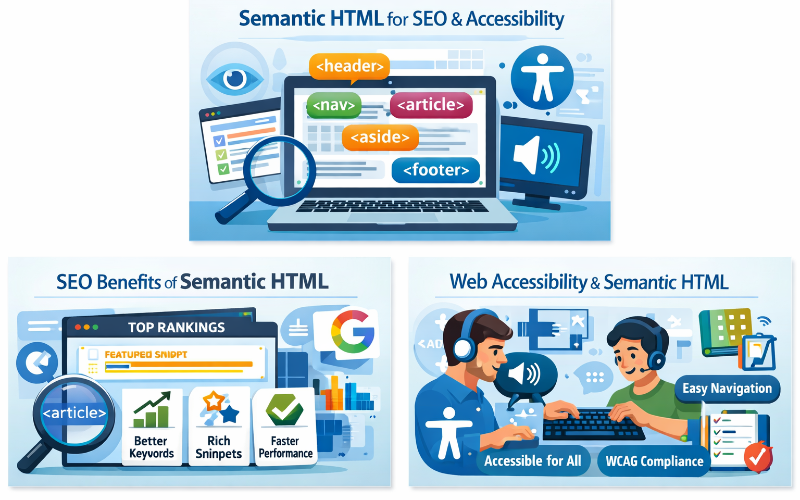20.05.2025
In the ever-evolving world of web development, responsive web design (RWD) continues to play a critical role. As we approach 2025, the need for a seamless, adaptable web experience has never been more important. With the rapid evolution of devices, technologies, and user expectations, responsive design isn’t just a trend—it’s an essential part of crafting accessible, user-friendly websites. Here's why responsive web design matters more than ever as we head into the next decade.
1. Diverse Devices and Screen Sizes
One of the primary reasons responsive web design has become indispensable is the sheer variety of devices on which websites are accessed. In 2025, the range of screen sizes will continue to expand—smartphones, tablets, laptops, desktops, wearables, and even smart displays will require websites to adapt effortlessly. A responsive website adjusts its layout, images, and content based on the screen size, ensuring an optimal user experience across all platforms.
From compact mobile phones to ultra-wide monitors, responsive design ensures visual consistency and usability. Without it, users may face broken layouts, unreadable text, or clunky navigation—driving them away quickly.
2. Mobile-First World
The shift to mobile-first browsing has been accelerating for years. By 2025, designing with mobile in mind will be non-negotiable. As mobile devices grow more powerful and data speeds increase, more users will browse the web on the go. Mobile-first design will be a fundamental standard.
Search engines like Google have long prioritized mobile-friendly websites in rankings. In 2025, any site that isn't mobile-ready will fall behind. Responsive web design offers a seamless mobile-first strategy—designing for small screens first and enhancing for larger ones. This keeps users engaged and improves both UX and SEO performance.
3. SEO Benefits of Responsive Design
SEO (Search Engine Optimization) is directly impacted by how your site performs across devices. In 2025, factors like page speed, interactivity, and layout stability—known as Core Web Vitals—will remain critical ranking elements. Responsive websites naturally meet these metrics by avoiding duplicate content, enhancing usability, and loading faster.
Google rewards responsive, mobile-friendly websites with better visibility in search results. A website built responsively will enjoy higher rankings, more organic traffic, and better engagement metrics.
4. Enhanced User Experience (UX)
At its core, responsive design is about user experience. A responsive site automatically tailors its layout to the screen size, ensuring content is always readable, accessible, and interactive. Whether it’s a portfolio, blog, or e-commerce site, responsive UX makes navigation intuitive and enjoyable.
By delivering a consistent experience, businesses can reduce bounce rates, increase time on site, and improve conversion rates. In 2025, users won’t tolerate slow, cluttered, or unresponsive websites—and with responsive design, you don’t have to worry.
5. Future-Proofing Your Website
Responsive design is a long-term investment. It prepares your website for evolving devices and screen sizes, reducing the need for frequent overhauls. In 2025 and beyond, as new technologies like augmented reality (AR), virtual reality (VR), and foldable screens emerge, a responsive design framework will adapt more easily.
Rather than building separate websites or apps, a future-proof responsive approach ensures your site remains functional and appealing—saving both time and cost in the long run.
Conclusion
Responsive web design is no longer optional—it’s a requirement. As we step into 2025, both businesses and developers must embrace responsive strategies to deliver seamless, engaging experiences across every device. With mobile usage growing, search engines prioritizing mobile-friendly performance, and future devices on the horizon, adopting a responsive design mindset is the smartest way to keep your website relevant, effective, and future-ready.






